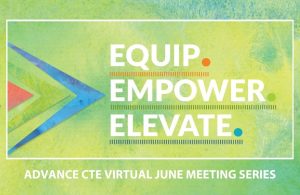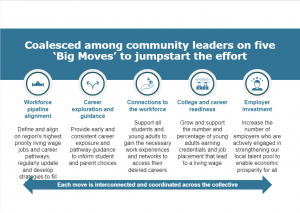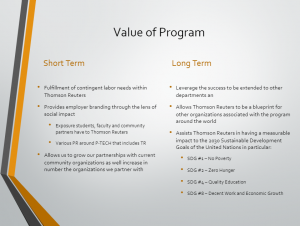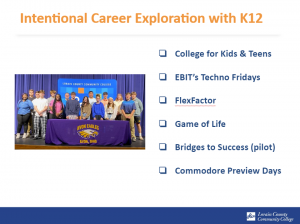This week the Senate advanced more modest economic competitiveness legislation after deliberating on the proposal for more than a year. Elsewhere, the Biden Administration drew attention to workforce challenges in the cybersecurity space, while the U.S. Department of Education (ED) unveiled new school discipline guidance while Secretary of Education Miguel Cardona and First Lady Jill Biden highlighted ongoing efforts to help learners recover from the impacts of the coronavirus pandemic.
 Senate Advances More Modest CHIPS Proposal
Senate Advances More Modest CHIPS Proposal
After over a year of consideration, Senate Majority Leader Chuck Schumer (D-NY) introduced a measure late Tuesday night, July 19, that formally began debate on economic competitiveness legislation intended to bolster the nation’s advanced manufacturing capacity in critical sectors of the economy related to the production of semiconductor chips. Currently known as “CHIPS+,” earlier iterations of this legislation, introduced in both the House and the Senate separately over the last year and a half, included significant new funding in education and workforce development. In particular, lawmakers had hoped to include an expansion of the federal Pell Grant Program to include high-quality, shorter-term CTE programs. Known elsewhere as the JOBS Act, this proposal would be key to cultivating the skilled workforce necessary to make investments envisioned under this legislation successful. Senator Rob Portman (R-OH)– a key negotiator for the current CHIPS+ proposal and a long-time co-sponsor of the JOBS Act– recently highlighted the urgent need to enact this reform to the federal Pell grant program.
Despite these ongoing legislative efforts, lawmakers have remained unable to find consensus on these and many other provisions that were under formal consideration as part of a bicameral and bipartisan conference negotiation. As a consequence, the legislation currently under consideration in the Senate has been pared back considerably and does not include many of the provisions, like the JOBS Act, that Advance CTE believes are urgently needed. If enacted, however, the bill would create several new grant programs aimed at preparing students to enter into STEM and computer science fields, while also providing significant new subsidies to semiconductor manufacturers and designers. The measure was procedurally advanced on a bipartisan basis, 64-34 and will be considered by the Senate further next week.
Biden Administration Highlights Cybersecurity Workforce Needs
On Tuesday, July 19, the Biden Administration convened a National Cyber Workforce and Education Summit to highlight the ongoing and urgent need to create and prioritize career pathways programs that lead to careers in cybersecurity. As part of the summit, the U.S. Departments of Labor and Commerce announced a new initiative aimed at bolstering and expanding apprenticeship programs to prepare individuals for careers in cybersecurity. This “120-day Cybersecurity Sprint” is intended to promote existing registered apprenticeship programs and support the creation of new programs aimed at addressing this urgent labor shortage. Additional information on this effort can be accessed here. More on the summit can be found here.
ED Releases New School Discipline Guidance
ED unveiled new guidance on Tuesday, July 19, for states and school districts to help K-12 education leaders address longstanding disparities in discipline for learners with disabilities. The guidance follows a 2018 Government Accountability Office (GAO) report which found that learners with disabilities, particularly learners of color, face disproportionate rates of school discipline as compared to their peers. The guidance re-emphasizes the requirements of Section 504 of the Individuals with Disabilities Education Act (IDEA) while highlighting best practices regarding implementation. The guidance can be found here and a related press release from USED can be found here.
Secretary Cardona, First Lady Biden Launch Pandemic Relief Tour
Earlier this week, U.S. Secretary of Education Miguel Cardona and First Lady Jill Biden announced a joint. nationwide tour. In the coming days, the duo plan to highlight the impact of the American Rescue Plan (ARP) in helping students recover from the impacts of the pandemic, recover from lost instructional time, and provide enrichment and academic opportunities during the summer months. In particular, Cardona and Biden aim to emphasize how the $122 billion in ARP funding has helped more learners access out-of-school and summer enrichment programs as a means to accelerate learning. More information on the tour can be found here.
Steve Voytek, Policy Advisor


 On June 8, Advance CTE held the first of three events that encompass our Virtual June Meeting Series. The series offers three opportunities to equip Career Technical Education (CTE) leaders with the latest research and innovations, empower them to succeed, and elevate their work to raise awareness of the value of CTE.
On June 8, Advance CTE held the first of three events that encompass our Virtual June Meeting Series. The series offers three opportunities to equip Career Technical Education (CTE) leaders with the latest research and innovations, empower them to succeed, and elevate their work to raise awareness of the value of CTE.  Dallas Foundation Chief Impact Officer Drexell Owusu was candid about the equity and quality of life challenges facing residents of Dallas. However, he was equally optimistic about the role that CTE can have in providing high-quality pathways to maximize recent economic growth and increase the number of young adults achieving a living wage to 50 percent within one generation. He identified five strategies that comprise the Dallas Thrives initiative to achieve this goal.
Dallas Foundation Chief Impact Officer Drexell Owusu was candid about the equity and quality of life challenges facing residents of Dallas. However, he was equally optimistic about the role that CTE can have in providing high-quality pathways to maximize recent economic growth and increase the number of young adults achieving a living wage to 50 percent within one generation. He identified five strategies that comprise the Dallas Thrives initiative to achieve this goal.  Thomson Reuters Director of Community Relations
Thomson Reuters Director of Community Relations  Lorain County Community College Manager of Career Technical Pathways & Programs
Lorain County Community College Manager of Career Technical Pathways & Programs